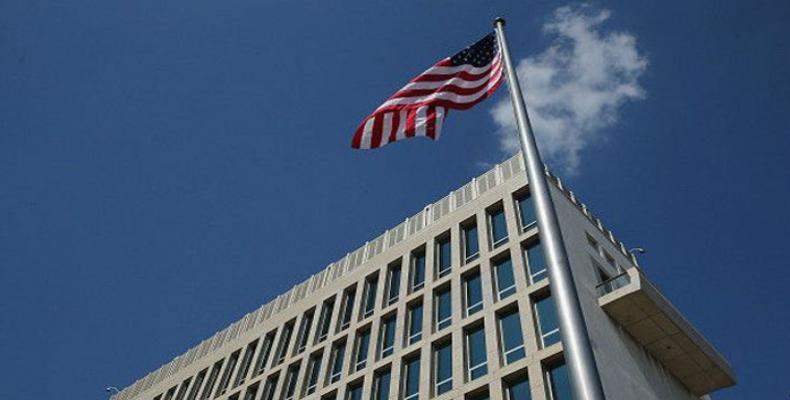Washington, August 17 (RHC)-- The U.S. Department of State is reducing the amount of time its diplomats are staying in Cuba to only one year, an unusually short time frame typically applied to war torn or otherwise dangerous nations.
According to Politico website, the measure responds to the supposed health incidents reported by U.S. diplomatic staff deployed in Havana.
However, after a year and a half of investigations conducted by Cuban and U.S. experts, no evidence has surfaced pointing to the origin of the alleged incidents or showing Cuba’s involvement in their occurrence.
The change in the length of tours, which was previously 24 months, puts Cuba in league with nations as violent as Iraq, Afghanistan and South Sudan, despite the fact that the island is recognized as one of the safest nations in the region for its nationals and for the more than four million foreign visitors it receives each year.
The measure is the latest in a series of unilateral actions that affect bilateral ties. The United States withdrew most of its Havana embassy staff in September last year and has closed consular services for Cubans, affecting thousands of families.
Also, the Cuban capital has been declared by the State Department as an unaccompanied position, which prevents the family of diplomats from staying with them during their tours.
According to an August 10th State Department cable obtained by Politico, U.S. officials determined that the American Embassy in the Cuban capital, “is a post experiencing extraordinary circumstances”, but it did not specify what those circumstances were.
In confirming the change, the State Department again used the term "attack" to refer to the incidents that it alleges have occurred in Cuba.
The director general of the United States of the Ministry of Foreign Affairs of Cuba, Carlos Fernández de Cossío, recently denounced the use of that term. "He who uses the term attack to refer to the symptoms reported by U.S. diplomats is lying. He does it consciously, with a well-defined political agenda and a load of opportunism," said Cossío on Twitter.
"The State Department cannot hide the political manipulation of ailments reported by its officials," Cossío said, noting that the "alleged concern for health and safety of its diplomats is used with political opportunism."
Washington's new action against Cuba comes a few hours after the Journal of the American Medical Association published letters from 10 scientists questioning a study which concluded US officials suffered mysterious brain injuries in Cuba.
In the letters sent to the prestigious publication, the experts stated that the authors of a report published in February in that same media did not include mass hysteria as one of the possible causes of the symptoms reported by the officials.
Such "massive psychological outbreaks" generally occur in high stress environments, and all those involved begin to exhibit similar real physical symptoms, said the authors of the letters, cited by the digital portal Buzz Feed.
Americans Robert Bartholomew, a medical sociologist who works at the Botany Downs Secondary College in New Zealand, and Robert Shura, a neuropsychologist at Salisbury Veterans Medical Center in North Carolina, were among those who felt there was a misinterpretation of test results.
According to them and the other experts, the university team overlooked common disorders that could have made the workers sick, or dismissed the psychological explanations for their symptoms.


